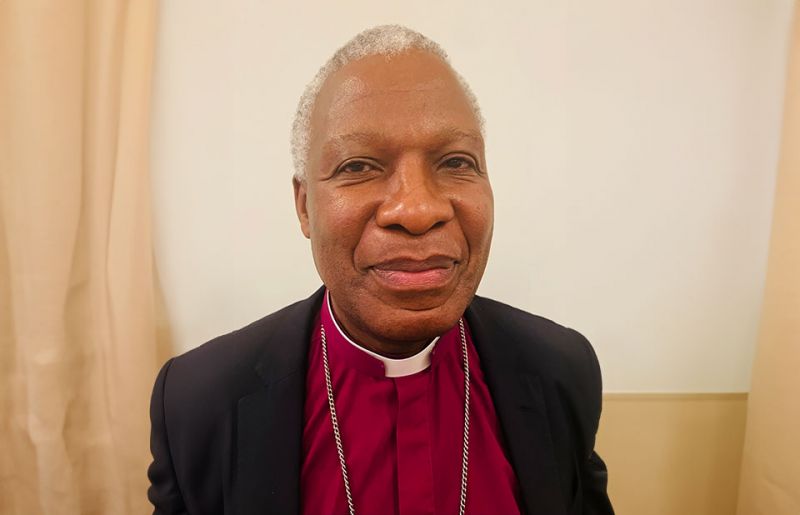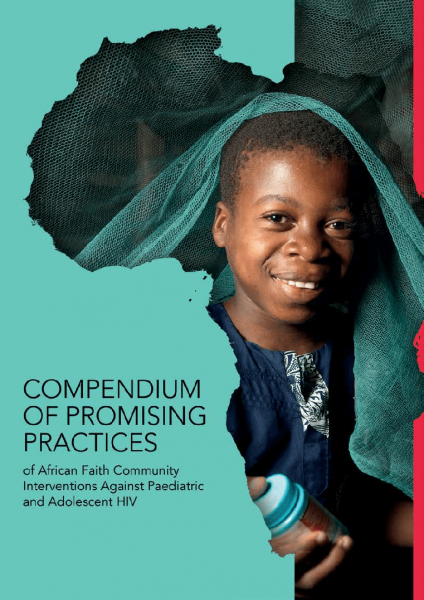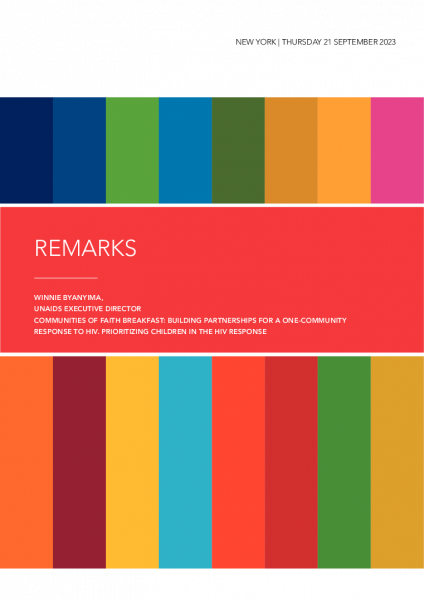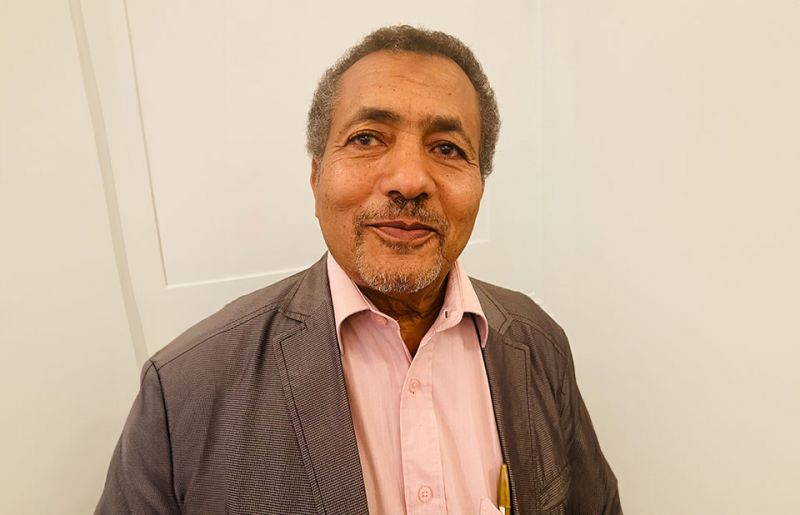Holy Disrupters: Interviews with religious leaders and advocates on HIV and compassion
Thabo Makgoba, Archbishop of Cape Town
UNAIDS speaks to the Archbishop of Cape Town, Thabo Makgoba about his work on HIV and his hopes for the future
What was your experience working on HIV in the early days?
I first started working on HIV in around 1998 when I was a rector in Johannesburg and it was a scary time, I remember the South African television adverts saying ‘AIDS kills’ with a coffin that banged—we were all terrified. Everyone was scared, there was a lot of stigma, parishioners were also dying from fear and lack of knowledge.
"There was an immense fear that life had come to an end…."
Through Archbishop Desmond Tutu and others we knocked on every door and established the Anglican Church of Southern Africa’s AIDS programme called ACSA. We hit the ground running but there was an immense fear that life had come to an end….
How has your work changed today?
Today our work has evolved—from fundraising, to incorporating HIV messages in the liturgy, in the prayers and in the readings. Today we make sure we don’t work in silos, we work with the mining companies, with the other churches and we work from an interfaith context—challenging our governments to do the right thing.
Much has happened in recent years and things have changed. There’s a sense of trust that has developed and partnerships now are much easier. As leaders, we have learned to work together, we’ve learned to work together on the ground, but we’ve also learned to work with our international partners. I’m hugely grateful to PEPFAR. Initially there was a degree of suspicion but once we realized, through UNAIDS, that PEPFAR is there to help us check our own resources and to strengthen our resolve to help people – a great deal of trust has been developed.
“There is nothing more pro-life than PEPFAR.”
I pray that PEPFAR will be reauthorized to ensure that the commitments that we have made are realized. There is nothing more pro-life than PEPFAR. Millions of mothers and children have been saved from dying because of PEPFAR.
UNAIDS has also been essential. UNAIDS has showed us how important numbers and record keeping are, how important data is. We have to be systematic, we have to be thorough in our interventions, understanding that evidence-based interventions are critical.
“UNAIDS has showed us how important numbers and record keeping are, how important data is.”
In faith communities you can drown in the tsunami of problems, you throw yourself into your work without really knowing whether the intervention is working. But through praying, partnering with others, looking at the numbers and seeing the impact on people whose viral load has been reduced has been a great experience—we have learned a lot through working with UNAIDS and PEPFAR.
What does the faith community bring to the response to HIV?
It’s the fact that we are there. We are in every corner, even where governments can’t reach with their 4x4’s we have a little church there, we have a mosque there, we see God’s people every Sunday at the very minimum. We marry we bury we baptize, and we do this work not because we want to be paid or we want constituencies, it is our vocation and our calling.
“We marry we bury we baptize….We are in every corner, even where governments can’t reach with their 4x4’s”
Whether you are a Christian, Muslim, a Jew or a non-believer, you are a child of God and you need healing. We don’t exist for ourselves, we exist in order to show the love and care of God in the communities.
“We smile at you so please smile at us, because together we have made this possible.”
We must ensure that no more children are born with HIV, we must work together to ensure that every child living with HIV has immediate access to treatment and we must ensure that those children will be alive and thrive. That way in 2025 they will come here saying “you have allowed us to live, and we smile at you so please smile at us, because together we have made this possible.”






